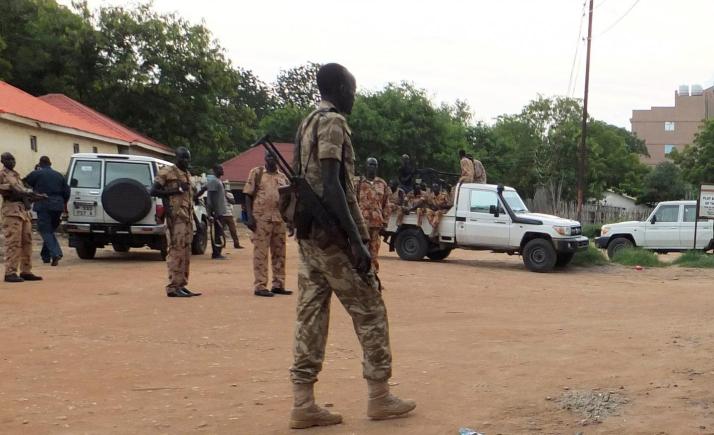South Sudan army denies responsibility for July clashes in Juba

September 13, 2016 (JUBA) – South Sudan army (SPLA) has denied the responsibility for the renewed clashes in the national capital, Juba, between forces loyal to President Salva Kiir and his former first deputy, Riek Machar.
A report by the United Nations (UN) has held President Kiir and the Chief of General Staff, Paul Malong Awan, responsible for organizing and carrying out provocative acts leading to the deadly military confrontations at presidential palace in Juba on 8 July, 2016, and the subsequent attacks on Machar’s residence on 10 July.
The army spokesperson announced at a news conference over the weekend that its command was outraged by the report, despite alleged attempts by the chief of staff to salvage the situation.
“SPLA Chief of General Staff was not responsible for Juba clashes. SPLA General Headquarters is outraged at UN’s accusation that the SPLA Chief of General Staff, General Paul Malong Awan organised and oversaw the July 2016 clashes at J1,” said army spokesman, Brigadier General Lul Ruai Koang.
The military officer accused the United Nations of being part of the problem rather than the solution.
“We in the SPLA would like to announce to the whole world that the irresponsible statement confirmed UN’s continuation of negative smear campaign against top leadership of the military,” he said.
Koang attempted to absolve Awan by citing conviction of 60 SPLA soldiers, execution of 2 SPLA soldiers by firing squad in Wau, pardoning of 17 SPLA-IO fighters stranded at Juba Regency Hotel in July as well as the formation of the recovery operation unit as evidence that he was against the resumption of hostilities.
“We are disappointed that the UN doesn’t appreciate the efforts of the SPLA Chief of General Staff, and instead does what it could to paint him in bad light and the national army,” he added.
He described report by the United Nations holding Awan responsible for organizing military confrontations as part of negative campaign to tarnish the image of the chief of staff.
Awan, according to Koang, should instead be commended for demonstrating leadership and for making sure that wrongdoers are held accountable.
(ST)
